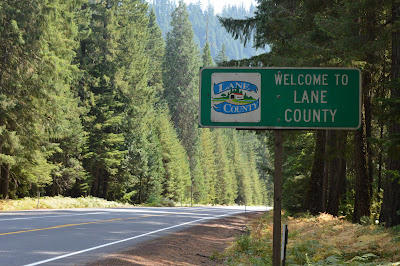.jpg) |
| Portland Convention Center |
With joy you will draw water from the
wells of salvation. Isaiah 12:3
We could spend so much time on the Northeast quadrant
of Portland. This district of Portland shares the N. Williams Avenue boundary
with North Portland to the west; the Columbia River is on the north and E. Burnside
Street to the south. Along the eastern edge there is a dog-leg border along NE
162 Avenue and NE 185th Drive.
The top section of Northeast Portland is occupied by
the Portland Airport. The neighborhoods in the middle of the quadrant are an
interesting mixture of old, wealthy neighborhoods and blue-collar areas. Many
of the older neighborhoods evolved from claims made during the Homestead Act,
which was passed in 1862 or the even earlier Donation Land Act. The affluent
areas include Irvington, Alameda, Grant Park, and Sullivan’s Gulch.
 |
| Northeast Portland |
In 1891 the City of Portland lay along the west side
of the Willamette River. On the east side was the town of East Portland and the
town of Albina. In that year the eastside towns decided to merge with Portland.
Albina was a very large area that reached to St. John’s. In these early years
it was settled by German and Irish immigrants. During World War II African
Americans came in large numbers to Portland to work in the shipyards. Many
chose to stay after the war but encountered racism in where they were allowed
to live and buy housing. Local realtors made certain areas of the city off
limits to people of color, and the black population was forced into unfavorable
loans in low-cost Albina. Other changes in the city, such as the building of
I-5, relocated even more African Americans into Albina.
During the 70’s and 80’s there were periods of unrest
in this part of Portland, and it was known as a high-crime area with drugs,
poverty, and gang activity during the crack epidemic of 1980 -1990. One neighborhood in what was once Albina is
the King neighborhood. In the 1990’s young, mostly white, people began buying
into the neighborhood and fixing up property until now 60% of the population is
white and the area has undergone what is called gentrification.
The neighborhood is on the edge of the Alberta Arts District
with housing prices above average for Portland. The history of the Alberta Arts
District is another one of change from a poverty area to a popular destination
in Portland. Much of this is credited to one woman, Roslyn Hill, “the Queen of
Alberta Street,” for her investment and development of the area. My children used to attend Last Thursday events in this part of town when they were in college. Last Thursday is an arts and culture event held on Alberta Street.
The Lloyd Center is in NE Portland, built in 1960 by
Ralph Lloyd, it was the largest of its kind in the world. I remember the skating
rink was quite a draw.
Sullivan’s Gulch is another area with an interesting
history. It is a real gulch, at one time filled with woods, a spring and
waterfall. By 1894 the trees were gone, and the Union Pacific Railroad ran
through the bottom. Now several highways and railroads run through it. During
the Depression it was the site of a “Hooverville” or “Shanty town,” where the
homeless lived in cobbled together living quarters until a fire destroyed it in
1941. Along one edge of Sullivan’s Gulch is one of the more affluent areas of
Portland, the Sullivan’s Gulch Neighborhood.
While there have been improvements in some areas of NE Portland, and there are some fine old neighborhoods with 100-year-old mansions, it has also become a high-crime area. Currently parts of this area, especially along I-5 and
west I-84, are known for theft, drug trafficking and violence. The area around the
Lloyd’s center seems to be a hot spot for trouble.
How do we pray for Northeast Portland?
Blessed are the peacemakers: for they
shall be called the children of God. Matthew 5:9
Pray for the PDX airport and the Columbia River as
entry points to the city of Portland.
Pray for the areas that have historically seen poverty,
gangs, and a high crime rate.
Pray for the peacemakers of Northeast Portland
including police, firemen, churches, and individuals.
.jpg)




Comments
Post a Comment